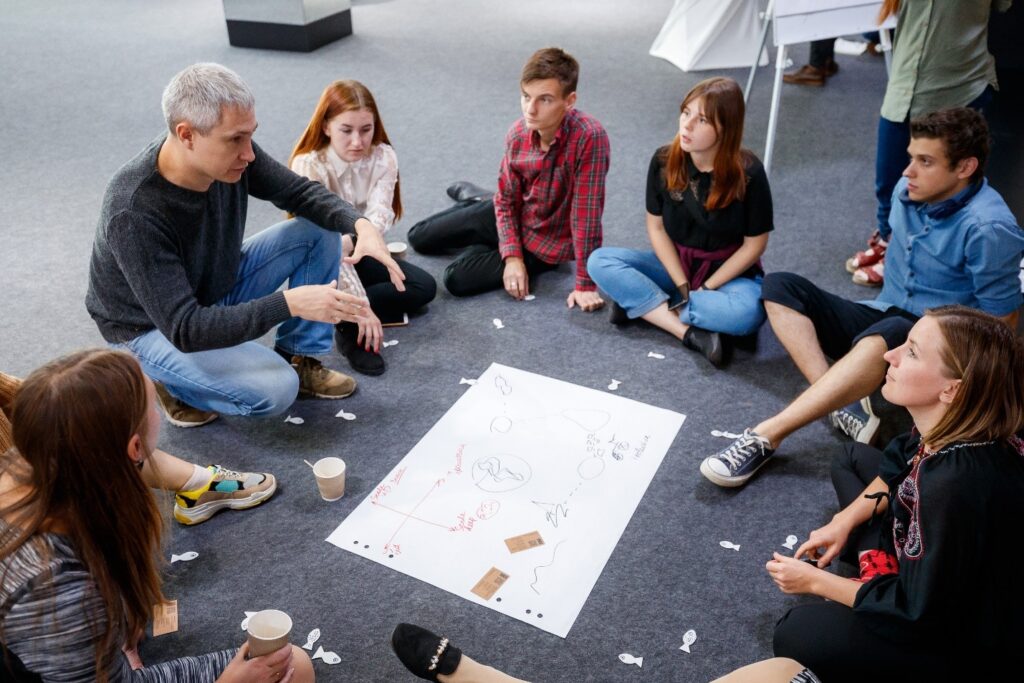Strengthening social bonds to prevent violent extremism in Central Asia
“After all, they are just children” said Zamira Baybubaeva, a 45-year-old mother in the small village of Zhakshylyk, in Kyrgyzstan’s southern region of Osh.
“This year, 400 children and their families returned to the country,” she explained. “It is our responsibility to show to our population how to welcome them back.”
In her new capacity as a council member, Ms. Baybubaeva joined the Chek-Abad district advisory group, a community-based platform created with support from UNDP hand in hand with local leaders, government representatives and youth.
The advisory group aims to monitor risks of violent extremism in the communities and take steps to reinforce the cohesion. It is empowered to bring forward suggestions to improve the community’s cohesion, and to conduct dialogues between its members.

“I joined this group as it is a great platform to solve our society’s problems,” Ms. Baybubaeva said. After completing training on how to recognize social tensions and on conflict prevention, the advisory group received a grant to address specific issues faced by their community.
Ms. Baybubaeva and her fellow advisory group members identified unemployment, as well as a general lack of opportunities for youth, as the main factor of instability in Chek-Abad.
With the grant, they set up language courses and helped unemployed youth get on-the-job training. “Some even found employment abroad,” Ms. Baybubaeva added proudly.
Ms. Baybubaeva’s group is one of the 38 Advisory Groups created throughout Central Asia by UNDP as part of a partnership between the European Union and the UN, the Strengthening Resilience Against Violent Extremism in Asia (STRIVE Asia) initiative.
As part of STRIVE Asia, each Central Asian country developed interventions along with communities to help them better resist violent extremism narratives, including by supporting the reintegration of returnees and their families.
In neighbouring Uzbekistan, UNDP equipped workers with mental health and psycho-social support tools to better handle the cases of returnees.
The work within communities was complemented by a joint support from UNDP, the UN Office on Drugs and Crime, the UN Office of Counter-Terrorism, the Office of the UN High Commissioner for Human Rights and UN Special Rapporteurs to provide a new draft of the national laws on Countering Terrorism and on Countering Extremist Activity, adopted in 2022 and 2023 respectively.
For Gulmira Mamatkerimova, who heads a civil society organization and was engaged in these reviews: “The old laws adopted in 2005 and 2006 had become outdated. They did not take into account the recent transition to digital tools and, for example, the use of social media to recruit new members of terrorist organizations.”
UNDP’s support ensured that that both laws were drafted inclusively, and that they reflect the concerns, priorities and points of view of the entire Kyrgyz society: civil society organizations, law enforcement agencies, international NGOs, local representatives from across the country as well as human rights defenders and the media.
“There was a need to bring this legislation in line with the newly adopted Constitution and by the ratified international conventions,” Ms. Mamatkerimova added. “And it is important that the work on countering terrorism and extremism is based on a solid legal foundation that is in line with human rights.”
Source : Relief Web


